
Bandoneón Tutorial: The Inicial 1
In this bandoneón tutorial I explain the first of a series of preparatory exercises. After having dedicated a series of videos to the fundamental aspects
Who is Fred Dömpke and why should deserve more consideration among the bandoneon players?
The bandoneon is conquering a significant role in jazz. Many bandoneon players are exploring this genre and are enriching it with interesting sounds and musical feelings, especially from tango.
Thanks to an assiduous German reader of this blog, I discovered a mysterious and unknown musician from the ’30s and’ 40s that played with a clear jazzy style: Fred Dömpke.
I have already written about an almost unknown German bandoneon virtuoso, Walther Porschmann. If in the case of Porschmann the information is scarce, in the case of Fred Dömpke it is practically zero.
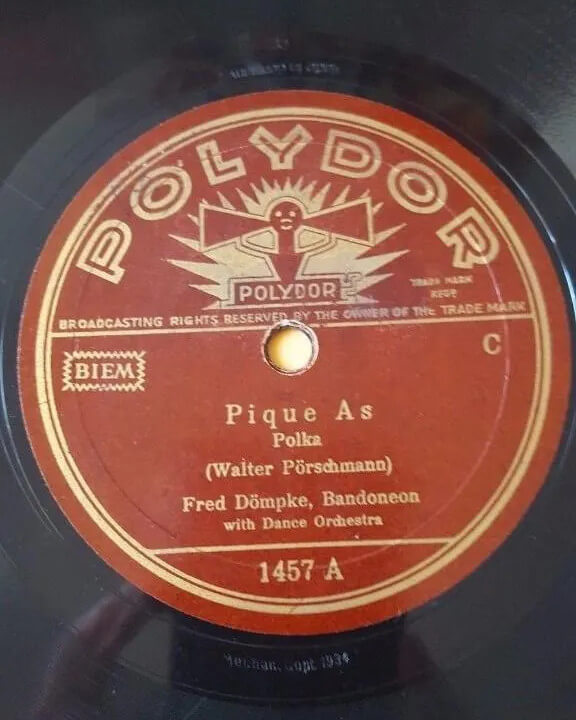
All I was able to find are some YouTube videos, citations in books and documents, and a collaboration mention with the Alfred Arnold factory (today he would probably be considered an endorser).
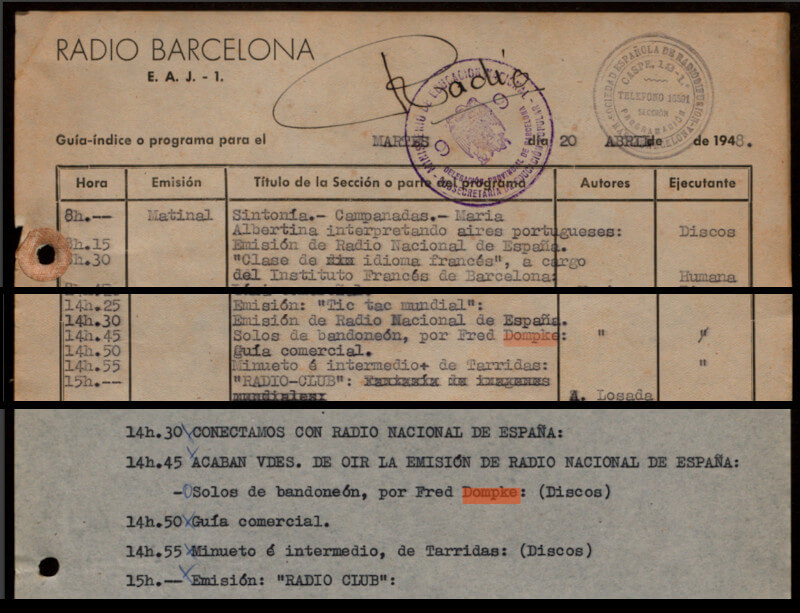
By listening to the available recordings, it is clear that he was also a virtuoso and that he played the Swing style. Moreover, it was not so strange that in those years the bellows instruments complemented the Swing orchestras: some coeval formations of Duke Ellington could be an example.
Although there are practically no photos available, I have reason to think that Fred Dömpke played the Einheits 144 bandonion system because it was practically the only system that was “allowed” to play in Germany after 1924 (read this article about the bandoneon in Germany during the Nazi era to learn more).
Unfortunately, the information I have been able to find on Fred Dompke stops there. I invite all those who have more information to share it, it will be published here on the blog.

In this bandoneón tutorial I explain the first of a series of preparatory exercises. After having dedicated a series of videos to the fundamental aspects
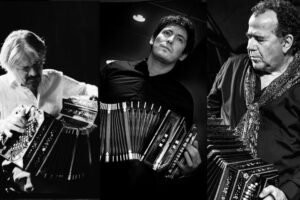
Learn about chromatic bandoneons! Download FREE PDF keyboard layouts for Peguri, Manoury, & Crosio-Caliero systems. Unisonoric bandoneon explained for beginners.
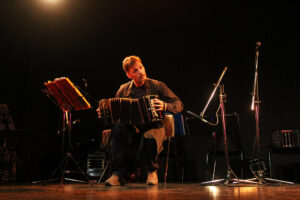
A Lesson from the Bandoneon to Move from Stage Panic to Expressiveness 2024 is coming to an end and I have been very busy during
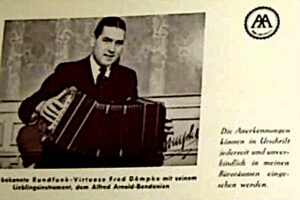
Who is Fred Dömpke and why should deserve more consideration among the bandoneon players? The bandoneon is conquering a significant role in jazz. Many bandoneon

The Bandoneon Price depends on the type of Bandoneon you want to buy. The equation is simple: if you want to learn to play the

Discussing Bandoneon Making with Baltazar Estol A few years ago I saw a video by M. Rodolfo Daluisio playing a bandoneon built by Baltazar Estol.